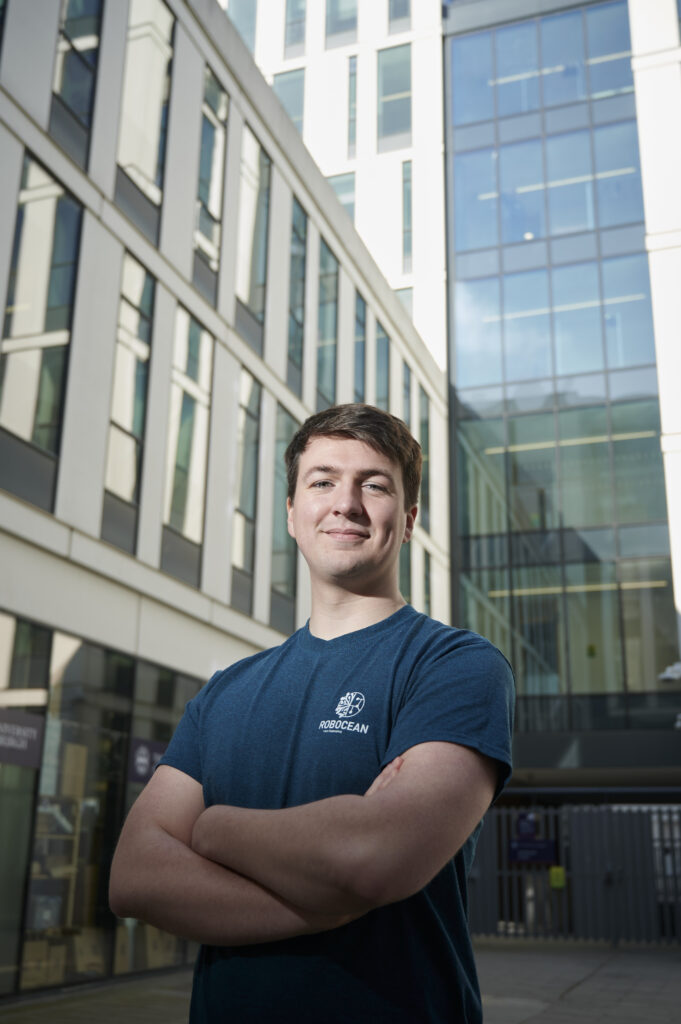A TEAM of young engineers is launching a £100,000 project to build a robot that will plant seagrass to help fight climate change.
The project is possible as a result of help received from Converge, the pan Scotland springboard for university entrepreneurs.
Seagrass meadows have been called “the lungs of the ocean” and are capable of absorbing carbon dioxide 35 times faster than tropical rainforests.
More than 90% of Britain’s seagrass has been wiped out during the past century, damaging the country’s chances of hitting its net-zero targets.

Now, a group of eight engineering graduates from the University of Edinburgh are developing a robot to plant seagrass seeds on the seabed.
The robot would plant the seeds in a faster and cheaper way than currently available methods.
Previously, it has taken 2,000 volunteers some six months to plant just one hectare of seagrass, the equivalent of 1.5 international football pitches, at a cost of more than £200,000.
Two of the engineers – Niall McGrath and Joe Ralphs – began working full-time in January at Robocean, the company that the team founded to turn the idea into reality.
Robocean won the 2022 Net Zero Challenge at Converge.
The initiative was launched in 2011 to help students, staff, and recent graduates from Scotland’s universities to create their own businesses.
Winning £30,000 from Converge has now allowed Robocean to match fund a £100,000 SMART:Scotland grant awarded by Scottish Enterprise.
Niall McGrath, co-founder and chief executive of Robocean, said: “I grew up watching David Attenborough documentaries and so I’m passionate about using my skills as an engineer to help tackle climate change.
“When I found out that 92% of Britain’s seagrass had been destroyed over the past 100 years, I realised that I’d found a problem I could help to solve.
“The key differentiator for our technology is that we’re taking a bottom-up approach to develop bespoke solutions for large-scale seagrass restoration.
“Our aim is to create something which is truly versatile and scalable.
“This will make reinstating Scotland and the world’s seagrass meadows more affordable and equitable, not just for planting but for all aspects of the restoration process.”
Niall added: “The training and support we received from Converge – coupled with the grant we’ve now received from Scottish Enterprise – will allow us to develop our technology.
“Launching a business like Robocean isn’t the end-game.
“Instead, it’s a way to make a difference to the world and we’re actively looking for partners and investors to join us on our journey.”
Over the next 18 months, Robocean aims to create what it describes as a ‘minimum viable product for commercial markets’.
News of the latest funding comes as Converge today opens applications to its 2024 programme.
More than £280,000 in funding and support is available to the winners and runners-up across four challenge categories – Converge, Create Change, KickStart, and Net Zero.
Also available to winners is access to the advice, networking events, and training that make Converge a highly regarded company creation initiative for all of Scotland’s Universities.
Over the past 13 years, the initiative has supported more than 670 people to launch more than 420 companies, raising £360 million in follow-on funding along the way.
Companies formed by Converge Alumni have an 80% survival rate after three years.
That work is part of Scotland’s wider entrepreneurial ecosystem, with many public and private sector organisations collaborating to help new businesses succeed.
Dr Claudia Cavalluzzo, executive director of Converge, said: “Converge is committed to empowering and supporting the next generation of diverse founders and innovators.
“We take a collaborative, ecosystem approach – working closely with universities, research institutes, investors, corporate partners and other organisations.”
Dr Cavalluzzo added that this approach helps “these brave individuals turn their dreams into reality.”
She said: “By backing talented, mission-led founders and connecting them to the full range of Scotland’s entrepreneurial support system, we can have an even greater collective impact.
“Whether it’s a climate-focused business like Robocean or a company addressing other societal needs, our goal is to foster more inclusive innovation and harness Scotland’s spirit of invention to build a better future.”

